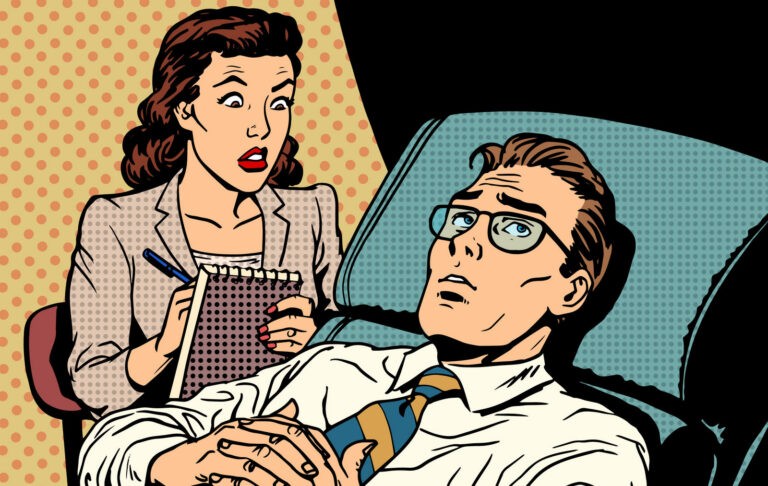
In sales, there is a high turnover simply because many people can’t deal with a high rate of rejection, which is common in this field. This is perhaps why all sales reps have to build mental fortitude to keep their mental health in check. Otherwise, they can internalize this failure as a personal flaw, which leads to a perpetual cascade of low self-esteem and unwillingness to engage in further sales.
However, the kicker is that while we will be speaking about sales, our whole life is one big sales process, as whenever we open our mouths, we are selling something – our ideas, wishes, desires, or ourselves (such as our personalities), as otherwise we would just keep our mouths shut. Of course, sales goes beyond just what we say, as it also includes how we walk, talk, dress, and behave overall.
While this is a crude and indirect comparison to our lives, viewing life through a sales lens explains a lot of our decision-making processes, as it helps us become more persuasive, make better decisions overall, and lead to a better life.
In this way, while we can choose not to work in sales, we can’t avoid sales in our personal lives (e.g., how we talk to friends, family, and other people), at work (e.g., interviews, presentations, or discussions of new ideas), in dating (looking for, sorting through, and keeping the best matches), and in every other aspect of life.
Moreover, most persuasive and successful people directly or indirectly see their whole life as one big sales process. They learn how to become better persuaders to achieve their desired goals in life.
Additionally, dealing with rejection does not only apply to sales. However, it is easiest to explain it from this perspective, which is why I chose to discuss this point from the perspective of sales, keeping in mind that the advice can be applied universally.
Here, I’m reminded of an ethical dimension in sales, as sometimes I wonder why my goals and desires should supersede those of others. However, it doesn’t have to be a zero-sum game where for me to win, others must lose. We can create many win-win situations where everyone gets what they want, such as in dating, where we find a partner we want, and so do others. In this case, we might not all date the same person, but there will be enough good apples on the tree for all of us to enjoy.
Still, sales is a numbers game, as some people are in the market for our solution while others are not. The key to sales is to move quickly through different perspectives until we find one that wants to buy from us. And when we are rejected, 95% of the time it has nothing to do with others but rather their willingness to engage with us.
Naturally, this 95% rejection rate implies that we need to do all our diligent preparation to the best of our ability. After that point, the outcome virtually has nothing to do with us. Here, our best doesn’t have to be the absolute perfect but the best we can personally achieve at any given point.
In this way, sales can generally be divided into three categories:
1) Uninterested
2) Neutral
3) Interested
When dealing with uninterested parties, it’s best not to waste time, energy, and mental health trying to convince them to become interested. This is often impossible or highly improbable, leading to wasted time, energy, and frustration. Instead, it is suggested that we reinvest our efforts into better perspectives.
I personally believe that most sales-related frustration occurs when dealing with uninterested parties. People may think it’s their fault they can’t close these deals when, in reality, it wasn’t a realistic possibility to begin with.
Neutral perspectives can still be convinced to buy from us, and this is where sales knowledge and techniques come into play.
Interested parties require less persuasion, but some sales knowledge is still necessary to push them to make a purchase.
The better we become in sales, the fewer uninterested and neutral, and more interested perspectives we will encounter. However, self-improvement on this scale is often a slow process that depends mostly on preparation. It’s something we need to continuously invest on an ongoing basis.
Ideally, we should spend the most time with interested leads, less time with neutral leads, and the least with uninterested parties. This approach will lead to more sales, positive reference points, and higher self-esteem, which is essential for making even more sales.
After all, the best time to close new sales is right after we close other sales, as our positivity, happiness, and confidence are often the best sales prompts we can have. In this way, I always say that happiness is a universal good, as it is beneficial for many aspects of life, including sales.
Studies indicate that happier people tend to earn more money, waste less time, money, and energy trying to feel better, and instead pursue new sales or other endeavors in life. They have better relationships, including with their clients, who are more comfortable buying from them. Moreover, they tend to have higher levels of optimism, motivation, proactivity, productivity, hope, persistence, confidence, opportunity-seeking behavior, and a propensity for risk-taking.

In other words, happiness improves virtually every aspect of life and can be considered a competitive advantage that we can cultivate (plus, it feels good to be happy). And the happier we are overall, the more advantages we tend to enjoy, such as already mentioned increased income, better relationships, and enhanced productivity, which are proportional to our level of happiness, suggesting that our goal should always be to maximize happiness and minimize unhappiness.
Certainly, some sales representatives may complain that the market is oversaturated and there are no good leads. However, this problem often stems from a lack of expertise or being in the wrong market.
For example, until my early 20s, I lived in Portugal, and I had poor social skills. I had a horrible social life, often blaming myself for not being good enough and being unable to make friends. However, as soon as I left Portugal and became better in sales, I progressively found that the issue wasn’t me, but just where I was. And while I’m not saying that you should stay away from Portugal, as there are plenty of people who have an amazing life there, it just didn’t work for me at that point in time.
Similarly, I met a Russian girl who was average looking and therefore generally uninteresting in Russia. However, as soon as she left Russia, she found herself to be considered very attractive and became very efficient in personal sales. In her case too, Russia was just the wrong market.
Here, I’m reminded of a concept called “being in the game,” which essentially means to be loud, seen, prepared, and overall positioned correctly to be noticed and ask for a sale. For example, we shouldn’t try to scream at a potential client from across the street while they are completely distracted, as we are not positioned correctly to make a sale.
It is interesting that a lot of people get frustrated about not having enough sales in whatever area of life, while they aren’t even positioned correctly to ask for a sale. For example, I had a client who complained to me saying that they are perpetually single, while realistically speaking they were constantly sitting at home and virtually never going out to places where they could find a potential partner. They just expected the universe to give them everything they wanted on a silver platter, while they never left the comfort and security of their house.
Lastly, your belief in your product will help with a sales process, as we fight harder to convince people to buy from you. I mean, we know that it is in their interest to buy from us, so make an extra effort to convince people that they absolutely need our product, even if they don’t realize it themselves.
There is much more to say regarding sales, as a library of books was written about how to become a better salesperson. It’s an ongoing process, but as far as dealing with fear of rejection is concerned, we should realize that the best way forward is through the fire, so to say, to become so good at sales that you realize that rejection is just a natural way to separate the interested perspectives from uninterested ones.
And while sometimes we really want or need someone uninterested to become interested, in these cases, we really need to study the requirements necessary to make this transition, realizing that sometimes the process of going from a “no” to a “yes” is like meeting legal requirements, otherwise, we can’t progress forward. In this case, the rejection isn’t necessarily personal. It’s just something we need to do, so no point crying a river when the path forward is just doing diligent work to make something happen.
Similarly, often the only requirement to succeed is to go through the necessary rejections. As such, if you know on average you need to make 10 calls to get 1 sale, then there is no point in kicking yourself if the first 9 people reject you because it was supposed to happen, as just like with legal requirements, you just didn’t meet these requirement, you are not yet in the game, and can’t expect to have a sale.
Overall, I guess you didn’t expect to read so much about sales when talking about avoiding rejection. I didn’t think about this either when I started to write this article. And yet, to say everything I wanted to say, this was perhaps the best way to explain things.
And as per the topic of this blog, we can correlate our desire to deal with fear rejection to our ability to be happy, as in many ways rejection is part of life. So if we want to be truly happy, we need to have good tools in order to continue being happy despite everything.
As such, if you are interested in becoming truly happy, you are in the right place. Continue reading this blog and explore our programs and offerings, which are all designed to help you reach your happiest potential, and consequently help you live your best life!
Stay happy!















1 thought on “How to Overcome Fear of Rejection & Cultivate Happiness”
enjoy reading this nice motivational inspiration thank you for good work.